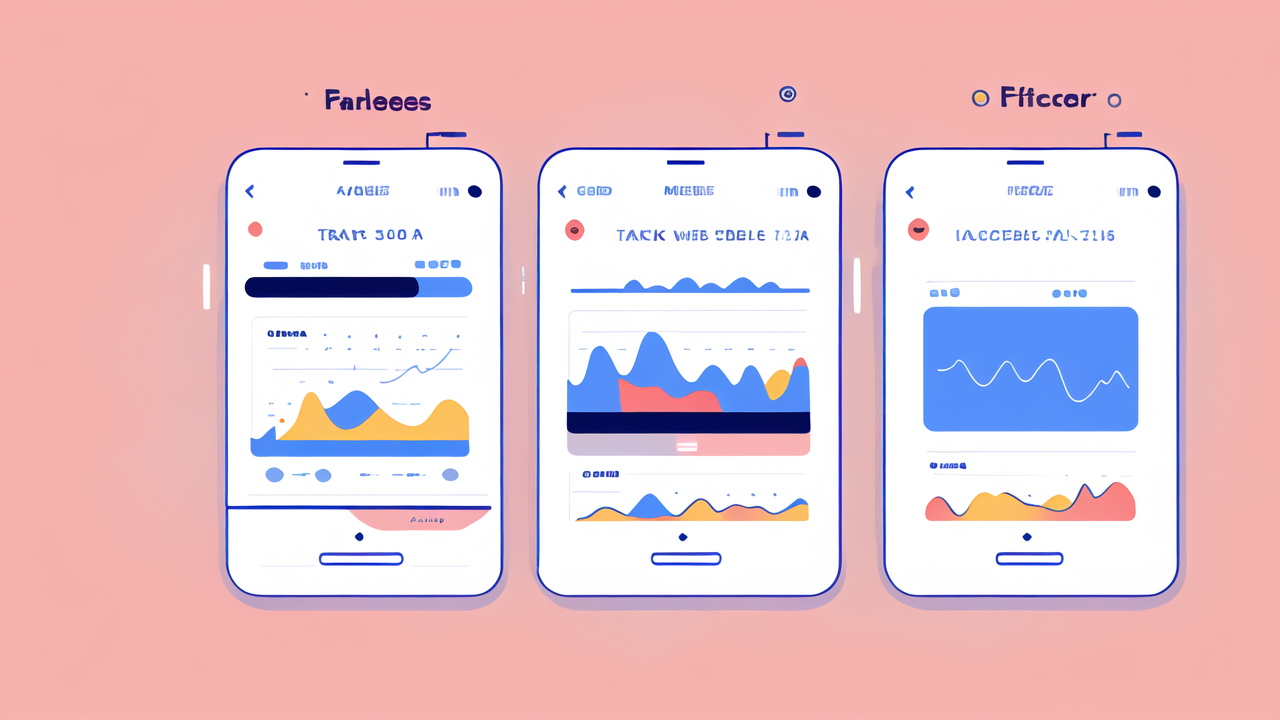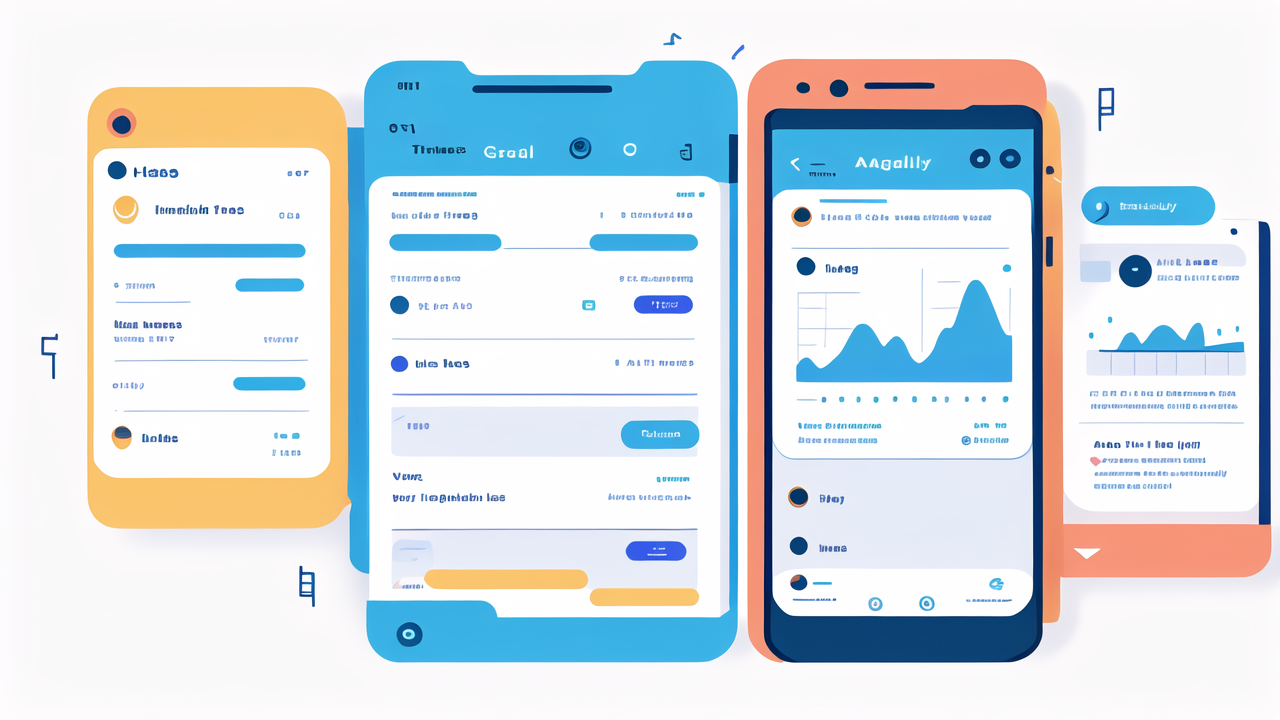Understanding Fitness Tracking Technology in the United States
The Evolution of Fitness Tracking Devices
Fitness trackers have come a long way since their early days. They started as simple pedometers. Now, they're sophisticated wearables. The first digital tracker came out in the 1980s. It could only count steps.

Today's trackers are much more advanced. They can monitor heart rate, sleep patterns, and more. The technology has improved rapidly. Sensors have become more accurate. Batteries last longer. Designs are sleeker and more comfortable.
Many trackers now have GPS. This allows for precise tracking of outdoor activities. Some can even measure blood oxygen levels. The evolution continues as new features are added regularly.
Key Features of Advanced Fitness Trackers
Modern fitness trackers offer a wide range of features. Here are some key ones:
- Heart rate monitoring
- Step counting
- Sleep tracking
- GPS for route mapping
- Calorie burn estimation
- Water resistance
- Smartphone notifications
Many trackers can detect different types of exercise automatically. They can track swimming, cycling, and strength training. Some high-end models offer ECG readings. This can help detect heart rhythm irregularities.
Battery life has also improved greatly. Many trackers can now last a week or more on a single charge. This makes them more convenient for everyday use.
The Role of Mobile Applications in Fitness Tracking
Mobile apps play a crucial role in fitness tracking. They act as a hub for all the data collected by the tracker. Apps display this data in easy-to-understand charts and graphs. This helps users make sense of their health information.
These apps often provide personalized insights. They can suggest ways to improve health based on user data. Many apps also allow users to set goals. They can track progress towards these goals over time.
Some apps integrate with other health and fitness services. This creates a more comprehensive health profile. Users can often share their data with healthcare providers. This can lead to better-informed medical decisions.
The Impact of Fitness Trackers on Consumer Behavior
Incentivizing Physical Activity Through Data Analysis
Fitness trackers have changed how people view their daily activity. They provide constant feedback on movement. This awareness often leads to increased physical activity. Many users report taking more steps just to meet their daily goals.

Trackers use various methods to motivate users. These include:
- Daily step goals
- Calorie burn targets
- Active minutes tracking
- Weekly or monthly challenges
Data analysis plays a key role in this motivation. Trackers show trends over time. Users can see how their activity levels change. This visual representation can be a powerful motivator.
Some trackers use gamification to encourage activity. They might award virtual badges for reaching milestones. This turns fitness into a fun, rewarding challenge.
Personalized Health Coaching via Fitness Trackers
Many fitness trackers now offer personalized health coaching. They use the data they collect to provide tailored advice. This can include suggestions for workouts or nutrition tips. The advice adapts based on the user's progress and goals.
Some trackers integrate with AI-powered virtual coaches. These can provide more in-depth guidance. They might suggest workout plans or help with meal planning. The coaching adapts as the user's fitness level changes.
This personalized approach can be very effective. It's like having a personal trainer on your wrist. The constant feedback and encouragement can help users stay motivated. It can also help them make more informed health decisions.
The Social Aspect of Fitness Tracking Communities
Fitness trackers have created new social communities. Many apps allow users to connect with friends. They can share achievements and compete in challenges. This social aspect adds a fun, competitive element to fitness.
These communities can be very motivating. Users can cheer each other on. They can also participate in group challenges. This creates a sense of accountability. It can help users stay committed to their fitness goals.
Some trackers integrate with social media platforms. Users can share their achievements more widely. This can lead to more support and encouragement. It also helps spread awareness about the benefits of fitness tracking.
Regulatory and Ethical Considerations in Fitness Tracking
Privacy Policies and User Data Protection
Privacy is a major concern with fitness trackers. These devices collect a lot of personal health data. Companies must have strong privacy policies. These should clearly state how data is collected, used, and shared.

Many countries have laws about health data protection. In the US, HIPAA regulates some health data. But it may not cover all data collected by fitness trackers. Companies often have their own privacy guidelines.
Users should be aware of what data is being collected. They should know how it's being used. Most companies allow users to control their data sharing settings. It's important for users to review and understand these options.
Ethical Implications of Fitness Tracking Devices
Fitness trackers raise several ethical questions. One concern is the potential for data misuse. Insurance companies might want to use this data. This could lead to discrimination based on health metrics.
There's also the issue of psychological impact. Constant health monitoring can cause anxiety in some people. It might lead to obsessive behavior around fitness and health. Companies need to consider these effects.
Another concern is the digital divide. Not everyone can afford or access these devices. This could lead to health inequalities. Those with trackers might have advantages in healthcare and wellness.
Regulatory Compliance for Fitness Tracker Companies
Fitness tracker companies must comply with various regulations. These vary by country and region. In the US, the FDA regulates some health-related features. Companies need to ensure their devices meet these standards.
Data protection laws are also important. The EU's GDPR has strict rules about personal data. Companies operating in Europe must comply with these regulations. Similar laws are being adopted in other countries.
Companies also need to be transparent about their practices. They should clearly communicate how they use and protect data. Regular audits can help ensure compliance. This builds trust with users and regulators alike.




Leave a comment
This site is protected by hCaptcha and the hCaptcha Privacy Policy and Terms of Service apply.